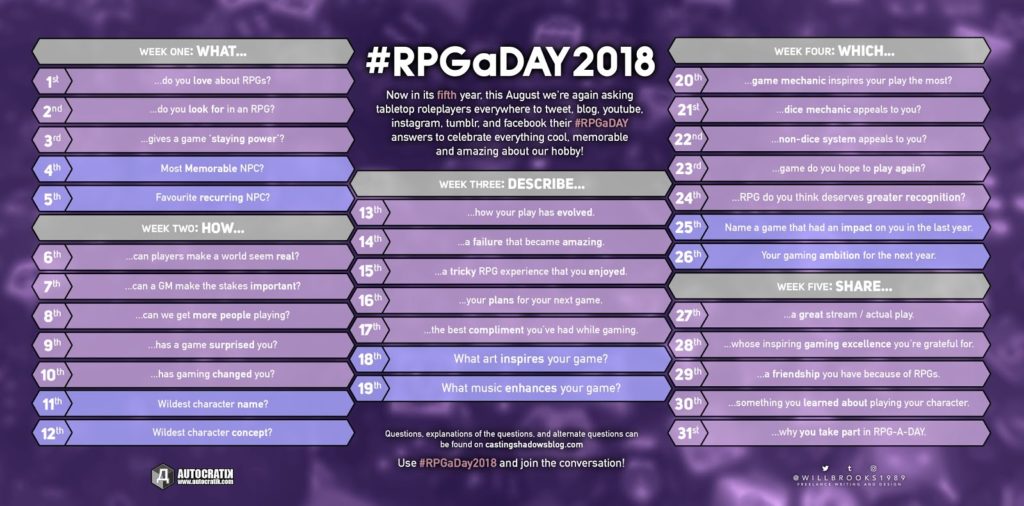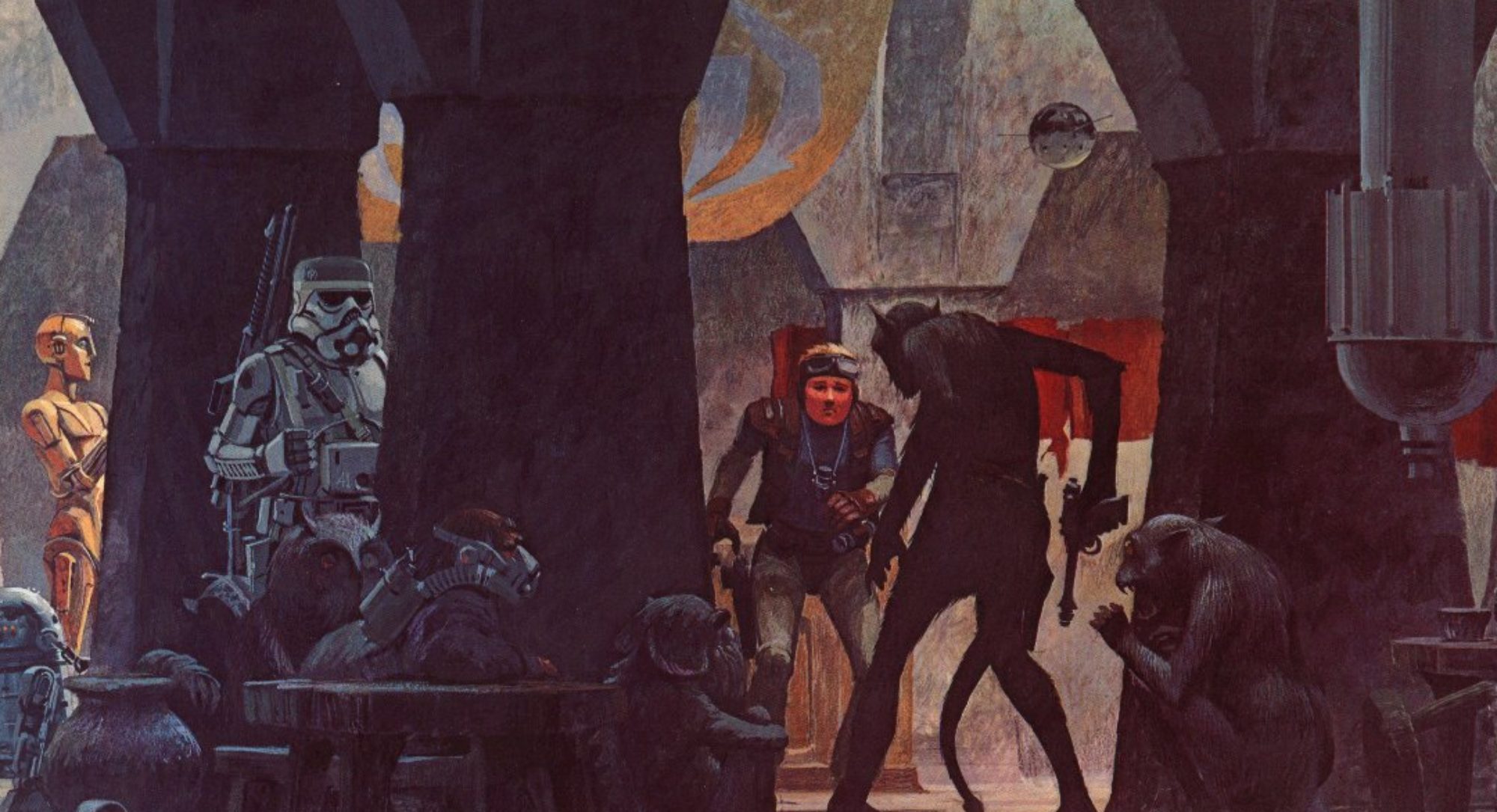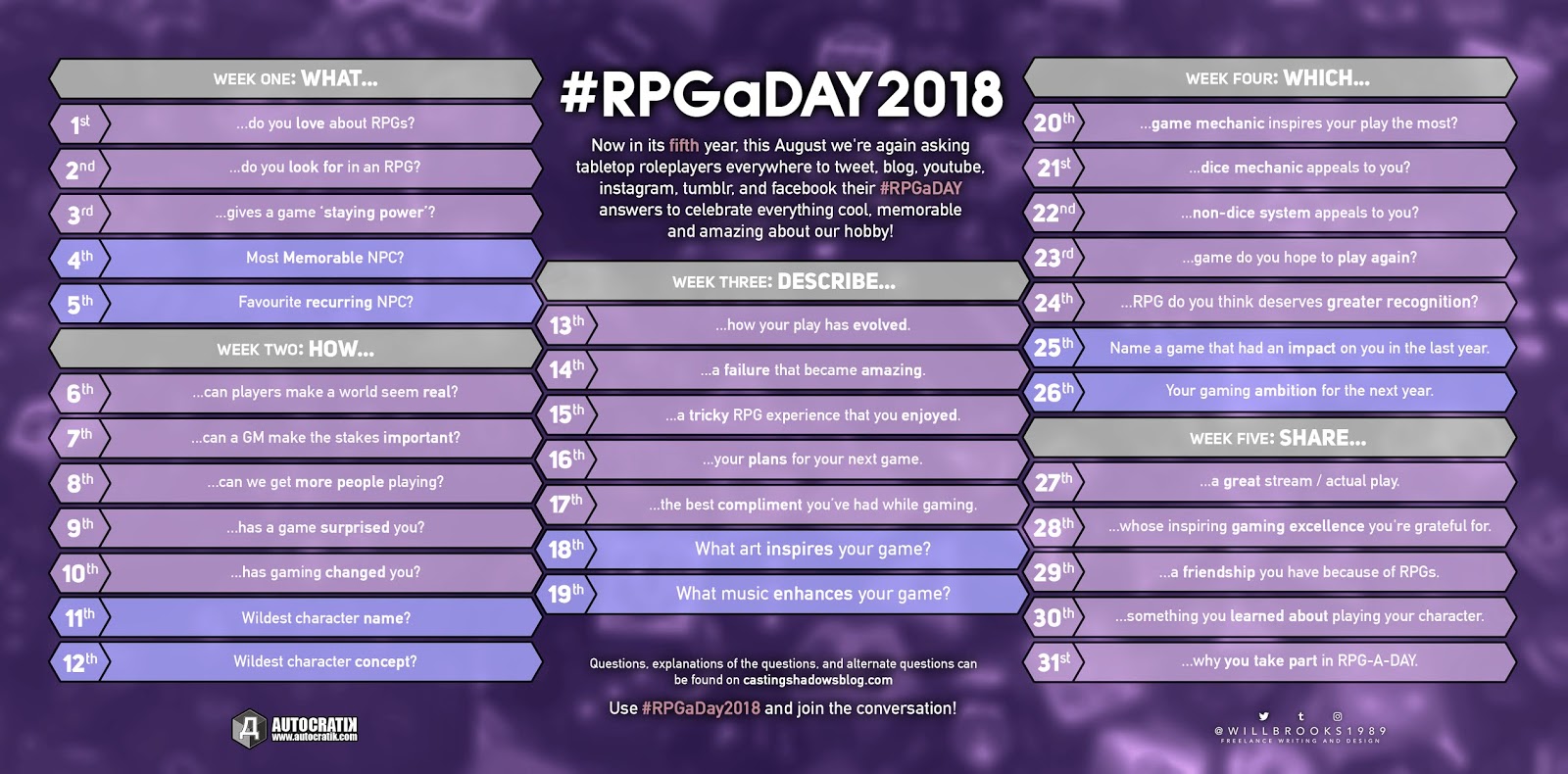
Today’s #RPGaDay question: What Do You Look For In An RPG?
First and foremost, I’m interested in a setting that fires my imagination. That’s one of the reasons why so many of my favorite games are licensed settings: Star Wars, Star Trek, Doctor Who, James Bond, etc. — I come to those with a pre-existing love of the setting, so my “buy in” is pretty easy.
I love original settings as well, but they take a bit more work to “sell me” on the concept. The best original settings are the ones that can grab me just from the “Elevator Pitch.” Give me a brief rundown of the concept, and if I find myself going “Oh, COOL!” — well, I’m in. Sometimes, it takes a combination of the pitch and some artwork.
A good setting will make me a fan of the world, not just the game. I’ll be willing to buy fiction, comics, merchandise, the whole transmedia package. It surprises me still that more games publishers don’t do this, preferring instead to just do the game alone.
Beyond the setting, I’m also looking for rules that are elegant.
“Elegant” is an entirely subjective description, of course — and for me, in this context, it means rules that are streamlined, emulative, and clever.
Streamlined, in the sense that the rules don’t hinder story-telling by “getting in the way” — I don’t want everything to grind to a halt while checking some chart, and doing cube-roots. I don’t want to have to look up special-case systems which are unrelated to the core mechanic. As a GM, I want to be able to reasonably wing it with a basic familiarity with the system.
Emulative rules are those which feel like the action they’re trying to convey. Examples include the chase and seduction mechanics from the old JAMES BOND 007 game, or Trusting In The Force from West End Games’ STAR WARS. I want the rules to match the setting. Don’t tell me your game is “swashbuckling adventure” and give me a combat system that differentiates between various weapons modifications and involves 40 minutes of tallying up bonuses and penalties for every round.
Lastly, I look for rules that are clever — ways of handling things that I’ve never seen before, that make me wish I’d come up with them. But that’s just the designer in me, admiring the art form.
This combination, elegant rules and a compelling setting, means that I’m kind of hard to please. But, honestly, when your day job is writing and designing RPGs, it takes something special to make you want to spend your leisure time on RPGs as well. Thankfully, something special always seems to come along.
 :



